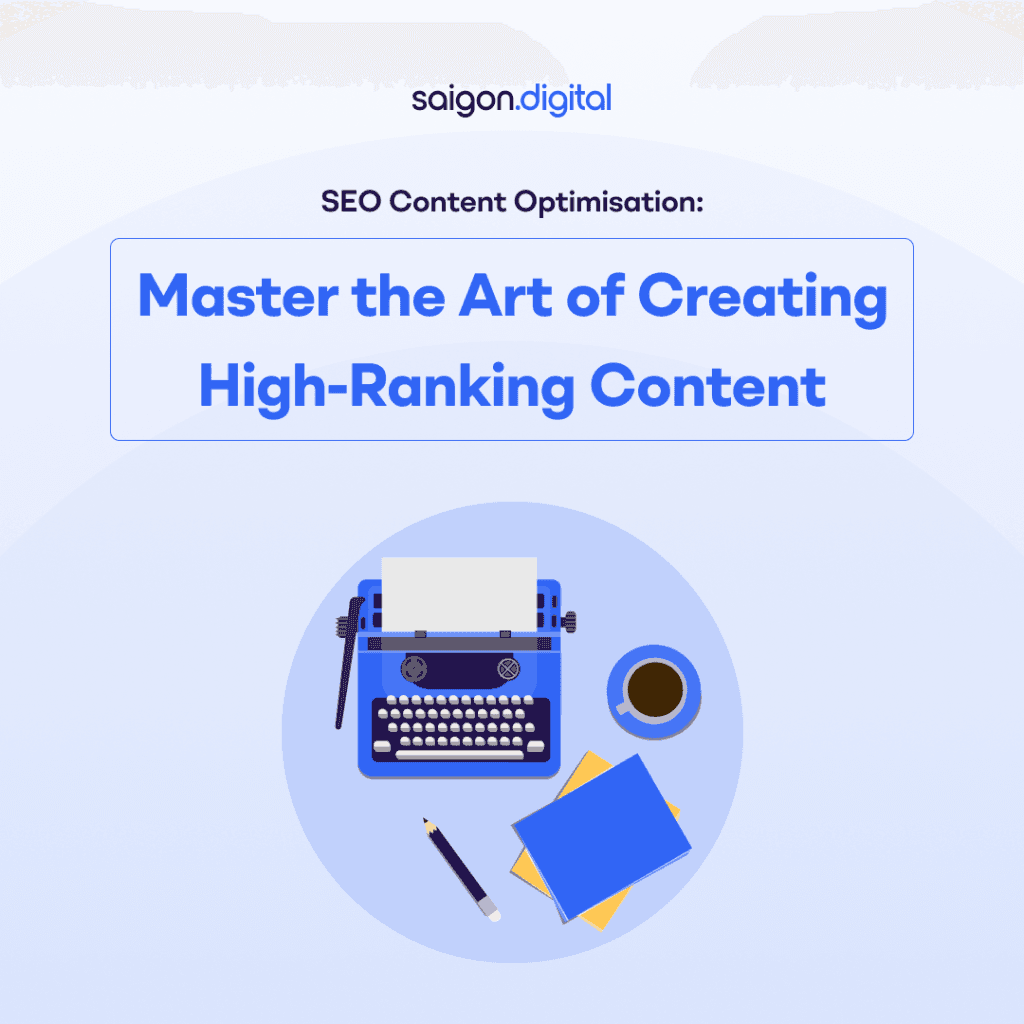
Why is SEO Content Optimisation Important?
Imagine this: You’ve written an incredible blog post, full of insights and practical tips. But if it’s hidden on page 5 of Google’s search results, how many people are actually going to see it? Not many. That's where website SEO content optimisation steps in. By optimising your content, you increase the chances of it appearing on the first page of search results, which, in turn, brings more visitors to your site.Search engines have algorithms that determine which pages appear at the top. They look for content that’s relevant, informative, and well-structured. Optimising your content tells search engines, "Hey, this is exactly what users are searching for!"SEO Content Optimisation: The Fundamentals
If you're wondering how to optimise content for SEO, here are the basics that should guide every piece you write.1. Start with Keyword Research
Before you even start typing, know what keywords people are using to search for the topic you're covering. Tools like Google Keyword Planner, Ahrefs, and SEMrush can help you discover these keywords. Once you have your main keyword (in this case, “SEO content optimisation”), sprinkle it naturally throughout your content. Avoid keyword stuffing – it should feel organic.Other related terms, such as content optimisation SEO or SEO content optimisation tools, should also appear to give search engines context and improve your chances of ranking for multiple terms.2. Create Engaging, High-Quality Content
No one, including search engines, likes poorly written content. Write for your audience first. Answer their questions, provide insights, and offer value. If you do that, people will spend more time on your page, and search engines will notice.
Don’t be afraid to use conversational language. Ask rhetorical questions, like “Are you struggling to improve your rankings?” and offer solutions. People love reading content that feels personal and engaging.
3. Optimise Your Headers and Subheadings
Search engines love well-structured content, and so do your readers. Break up your content with clear and descriptive headings (like the ones you’re reading now). Make sure you include your keyword in at least one H1 tag and some H2 or H3 tags if relevant.For instance, this article’s main keyword is "SEO content optimisation", and you’ll notice it naturally appears in headings throughout the text. This not only helps with readability but also signals to search engines what your content is about.4. Craft an Optimised Meta Description
A meta description is the short summary that appears below your page title in search results. Although it doesn’t directly impact your ranking, a well-written one can improve your click-through rate (CTR). Keep it between 150-160 characters, include your main keyword, and make it enticing.For example: “Master the art of SEO content optimisation with our expert guide. Learn how to boost your rankings, engage readers, and optimise your website for search engines.”5. Optimise Your Images
Images can be a huge asset to your content. They make it more visually appealing and help break up large chunks of text. But search engines can’t ‘see’ images like we do. They rely on alt text to understand what an image is about. Make sure you write descriptive alt text that includes relevant keywords, like “SEO content optimisation tools.”6. Use Internal and External Links
Linking to other pages within your website (internal links) helps search engines understand your content hierarchy and improves the user experience by guiding visitors to more relevant pages. For example, if you’ve written a post on keyword research, link to it when you mention that step in your SEO strategy.
External links to reputable sources also signal to search engines that your content is well-researched. Just make sure to link to high-quality, authoritative sites that are relevant to your topic.
Advanced Tactics for SEO Content Optimisation
Once you’ve got the basics covered, here are a few more advanced strategies to help you fine-tune your content:
1. Optimise for Featured Snippets
Featured snippets are those answer boxes that appear at the top of search results. You can optimise for them by structuring your content in a way that directly answers common search questions. Use bullet points, lists, or quick, clear answers to questions. This increases your chances of being pulled into a featured snippet, boosting your visibility.
2. Improve Your Content’s Readability
You might have the best content in the world, but if it’s hard to read, people will bounce off your page. Use short paragraphs, bullet points, and clear subheadings to make your content skimmable. Tools like Hemingway Editor can help you keep your sentences concise and easy to read.
3. Utilise SEO Content Optimisation Tools
There are plenty of SEO content optimisation tools out there to help you get the most out of your content. Tools like Yoast SEO (for WordPress users), Surfer SEO, and SEMrush’s content template can guide you through keyword placement, readability, and more. Use these tools as a guide to ensure your content ticks all the SEO boxes.What Are The Best Tools For SEO Content Optimisation?
There are many tools available for SEO content optimisation that can help you create, improve, and manage high-ranking content. These tools cover keyword research, content analysis, readability, and tracking performance. Below are some of the best tools you can use to master SEO content optimisation:
1. Yoast SEO
Best for: WordPress usersYoast SEO is one of WordPress's most popular SEO content optimisationtools. It provides a comprehensive solution for optimising individual blog posts and pages. Yoast helps you with keyword placement, meta tags, readability, and technical SEO aspects like XML sitemaps.- Key Features:
- Keyword optimisation and analysis
- Readability checks using Flesch Reading Ease scores
- Meta title and description guidance
- Internal linking suggestions
- XML sitemap generation
- Real-time SEO scoring
2. SEMrush
Best for: Comprehensive SEO and content planningSEMrush is a powerful tool that covers everything from keyword research to content optimisation in SEO. Its Content Marketing Toolkit uses data-driven insights to help you improve your content's readability and SEO performance.- Key Features:
- Topic research for identifying content opportunities
- SEO content templates based on competitor analysis
- SEO Writing Assistant for content suggestions
- Content audit tools
- Keyword position tracking
3. Surfer SEO
Best for: Content structure and optimisationSurfer SEO is a fantastic tool for optimising content based on real-time data from top-ranking pages. It analyses over 500 ranking factors for your chosen keyword and provides actionable insights, from word count to keyword density, to help you outperform your competitors.- Key Features:
- Real-time content score based on keyword usage
- Content planner and optimisation suggestions
- Integration with Google Docs for live optimisation
- SERP analysis to study competitors
- Content editor for guided writing
4. Ahrefs
Best for: Keyword research and content gap analysisAhrefs is known for its robust backlink analysis tools, but it’s also incredibly useful for SEO content optimisation. Its Content Explorer and Keywords Explorer features allow you to discover high-performing topics and keywords, while Site Explorer can help you find content gaps on your site.- Key Features:
- Keyword difficulty and search volume analysis
- Content gap analysis to find opportunities
- Backlink analysis for improving off-page SEO
- SERP overview to study competitor content
- Rank tracking
5. Clearscope
Best for: Content relevance and readabilityClearscope is an intuitive tool that helps you create content relevant to your target audience and optimised for search engines. It analyses top-ranking pages for your keyword and suggests what terms to include in your content to improve its relevance and search engine visibility.- Key Features:
- Content grading system based on relevance
- Keyword and phrase recommendations
- Google Docs and WordPress integration for live feedback
- Competitor content analysis
6. Google Search Console
Best for: Performance tracking and technical SEOGoogle Search Console is a free tool provided by Google that helps you monitor, maintain, and troubleshoot your website's presence in Google Search results. While primarily a technical SEO tool, it offers valuable insights into how your content performs in search results.- Key Features:
- Search performance data (clicks, impressions, CTR)
- Crawl and indexing errors
- Mobile usability tracking
- Data on which keywords bring in traffic
- Backlink analysis
7. Rank Math
Best for: WordPress users looking for a Yoast alternativeRank Math is a robust SEO plugin for WordPress that provides a wide range of features, from content optimisation to tracking keyword rankings. It’s a powerful competitor to Yoast SEO, offering additional features like keyword comparison and 404 error monitoring.- Key Features:
- Keyword tracking and optimisation
- Internal linking suggestions
- Advanced schema markup options
- XML sitemap generation
- Automated image SEO optimisation
8. Hemingway Editor
Best for: Improving readabilityThe Hemingway Editor is a simple yet effective tool for making your writing more straightforward and concise. While it’s not an SEO tool, it ensures your content is readable, which is crucial for SEO and user engagement.- Key Features:
- Readability score
- Suggestions for simplifying sentences
- Highlights for passive voice and adverb overuse
- Word count and reading time estimates
9. Frase
Best for: Answering user questionsFrase is an AI-powered tool that helps you create SEO-friendly content by focusing on user intent. It analyses the top search results for your keyword and creates content that directly answers users' questions, which is a powerful way to capture featured snippets.- Key Features:
- Content brief creation based on SERP analysis
- AI-powered content writing suggestions
- Keyword research and tracking
- Question-based keyword suggestions
- SERP result analysis
10. Moz
Best for: Beginners and comprehensive SEOMoz is an all-in-one SEO tool that provides everything from keyword research to backlink tracking. It’s a great choice for beginners looking for a simple but powerful way to manage their SEO content optimisation.- Key Features:
- Keyword research and difficulty analysis
- On-page optimisation suggestions
- Link explorer for backlink analysis
- Rank tracking and SERP monitoring
- Custom reports
The Importance of Ongoing Optimisation
SEO isn’t a one-and-done strategy. The world of search engines is constantly evolving, as should your content. Regularly revisit old posts, update them with new information, add fresh keywords, and ensure they align with current SEO practices.
Take a moment to look at your analytics. Is a once-popular post now dropping in rankings? If so, tweak it, add more value, and keep it relevant.





